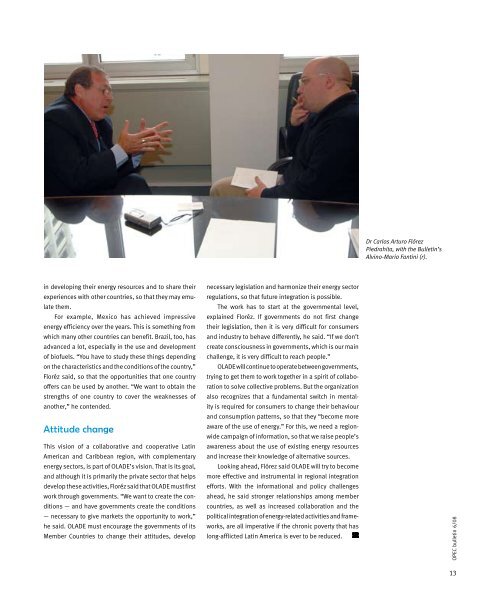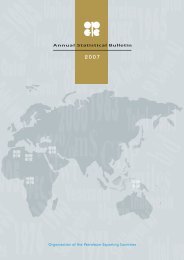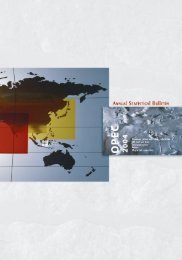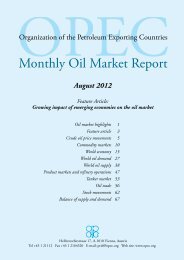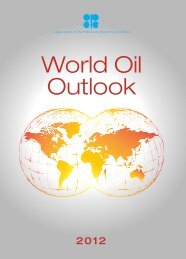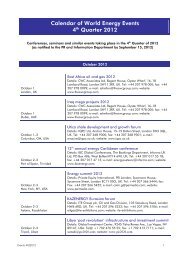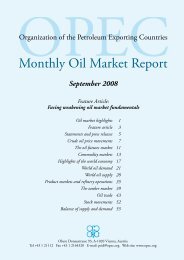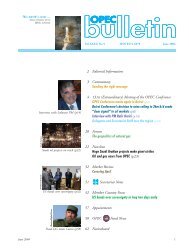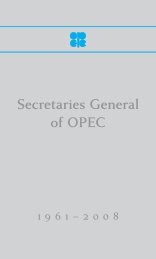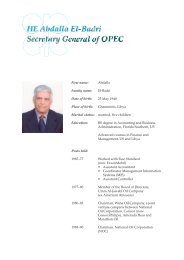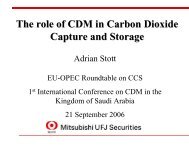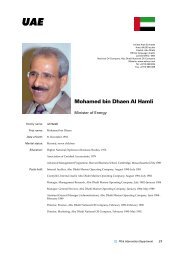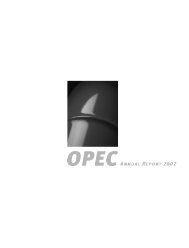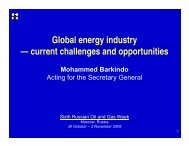Create successful ePaper yourself
Turn your PDF publications into a flip-book with our unique Google optimized e-Paper software.
in developing their energy resources and to share their<br />
experiences with other countries, so that they may emulate<br />
them.<br />
For example, Mexico has achieved impressive<br />
energy efficiency over the years. This is something from<br />
which many other countries can benefit. Brazil, too, has<br />
advanced a lot, especially in the use and development<br />
of biofuels. “You have to study these things depending<br />
on the characteristics and the conditions of the country,”<br />
Floréz said, so that the opportunities that one country<br />
offers can be used by another. “We want to obtain the<br />
strengths of one country to cover the weaknesses of<br />
another,” he contended.<br />
Attitude change<br />
This vision of a collaborative and cooperative Latin<br />
American and Caribbean region, with complementary<br />
energy sectors, is part of OLADE’s vision. That is its goal,<br />
and although it is primarily the private sector that helps<br />
develop these activities, Floréz said that OLADE must first<br />
work through governments. “We want to create the conditions<br />
— and have governments create the conditions<br />
— necessary to give markets the opportunity to work,”<br />
he said. OLADE must encourage the governments of its<br />
Member Countries to change their attitudes, develop<br />
necessary legislation and harmonize their energy sector<br />
regulations, so that future integration is possible.<br />
The work has to start at the governmental level,<br />
explained Floréz. If governments do not first change<br />
their legislation, then it is very difficult for consumers<br />
and industry to behave differently, he said. “If we don’t<br />
create consciousness in governments, which is our main<br />
challenge, it is very difficult to reach people.”<br />
OLADE will continue to operate between governments,<br />
trying to get them to work together in a spirit of collaboration<br />
to solve collective problems. But the organization<br />
also recognizes that a fundamental switch in mentality<br />
is required for consumers to change their behaviour<br />
and consumption patterns, so that they “become more<br />
aware of the use of energy.” For this, we need a regionwide<br />
campaign of information, so that we raise people’s<br />
awareness about the use of existing energy resources<br />
and increase their knowledge of alternative sources.<br />
Looking ahead, Flórez said OLADE will try to become<br />
more effective and instrumental in regional integration<br />
efforts. With the informational and policy challenges<br />
ahead, he said stronger relationships among member<br />
countries, as well as increased collaboration and the<br />
political integration of energy-related activities and frameworks,<br />
are all imperative if the chronic poverty that has<br />
long-afflicted Latin America is ever to be reduced.<br />
Dr Carlos Arturo Flórez<br />
Piedrahita, with the Bulletin’s<br />
Alvino-Mario Fantini (r).<br />
<strong>OPEC</strong> bulletin 6/08<br />
13


